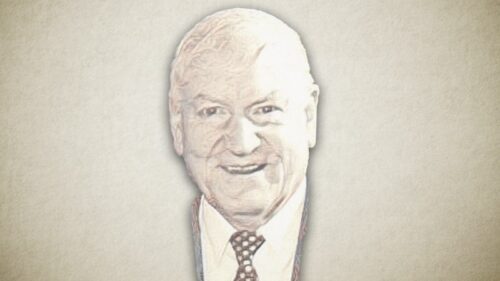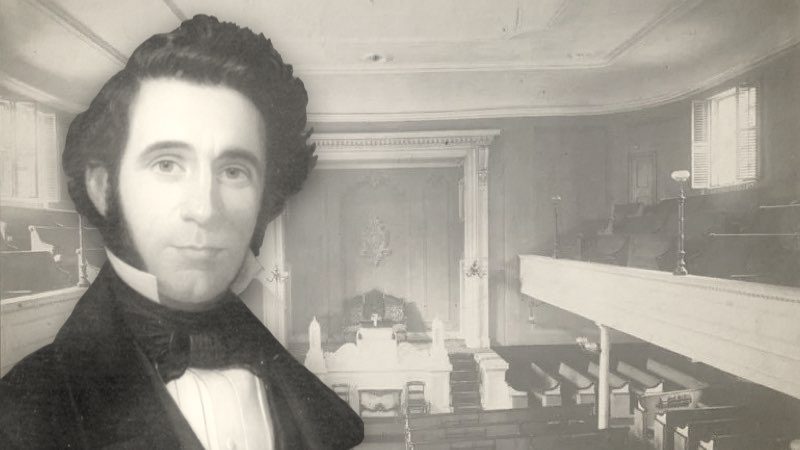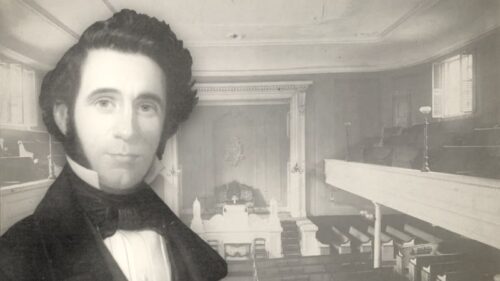-
1 Corinthians: Chapter 3, Verse 4
“For while one saith, I am of Paul, etc.]” This shows what their envying and strife, and divisions were about, and from whence they sprung; and which serve, to strengthen the proof, and support the charge of carnality brought against them; for when one sort made a party for Paul, and set up him as their minister above all others; and said “another, I am of Apollos,” Preferring him for his eloquence above Paul, or any other preacher, as appears from (1 Corinthians 1:12) there was a third sort for Cephas, whom they cried up as superior to the other two, or any other man; and a fourth were for Christ, and despised all ministers whatever: “are ye not carnal?” All this was a demonstration…
-
1 Corinthians: Chapter 3, Verse 3
“For ye are yet carnal, etc.]” The Syriac reads it, ˆwtna rsbb, “ye are in the flesh”: a phrase the apostle elsewhere uses of men in an unregenerate state; but this is not his meaning here, as before explained, but that carnality still prevailed among them, of which he gives proof and evidence: “for whereas there is among you envying, and strife, and divisions, are ye not carnal, and walk as men?” They envied each other’s gifts and knowledge, strove about words to no profit, entered into warm debates and contentions about their ministers, and went into factions and parties, which were distinguished by the names they were most affected to; in all which they gave too clear evidence of their prevailing carnality, that they…
-
May 21—Morning Devotion
"He found him in a desert land, and in the waste howling wilderness."—Deuteronomy 32:10 My soul, behold in this view of Israel thy case and circumstances. Where did Jesus find thee, when he passed by and bade thee live, but cast out, loathsome in thy person, and perishing in nature? Remember then, it was Jesus found thee, and not thou him. And where wast thou born, and new-born, and nursed, and educated, and trained? Was it not in a desert land, and in the waste howling wilderness? Can any thing be better suited to represent thy state by nature? is not the heart of man like the heath upon the desert, that knoweth not when good cometh? Is it not like the ground, dry, parched,…
-
Put On The New Man
-
Article 9 – Divine Chastisement
Articles Of The Faith And Order Of A Primitive Or Strict And Particular Baptist Church Of The Lord Jesus Christ, Based On The Declaration Of Faith And Practice Of John Gill, D. D., 1720 IX. Divine Chastisement. We believe that, though the people of God are exempted from the penal consequences of all their sins by the death of Christ, and freely forgiven all their transgressions[1] their voluntary sins after regeneration and conversion are followed by His paternal rebukes and chastenings[2] for the correction of their way wardness[3] their instruction in the truths they have disregarded or slighted[4] and the restoration of their souis.[5] ------------------------------- [1] See Article VIII. [2] 2 Sam 12:3; Ps 39:11; 89:32; 119:75; Prov 3:12; Jer 31:18-20; Mic 6:9; Mal 2:2;…
-
7 Church Discipline
Every organization which proposes to work smoothly, and yet efficiently, must have certain rules and regulations to be followed; certain laws for the individual members to obey. Failing in this—either without laws or with laws disregarded— all effort will go wide of the mark, and all endeavors, instead of succeeding and furthering each other, will counteract and interrupt each other; confusion will ensue, the wisest designs be frustrated, and the best laid plans become abortive. This is true everywhere. In the State, in the family, every association whether for business, politics, scientific, literary or art research or improvement, all must be regulated by laws adopted for the common good, to which obedience is to be rendered by the members. And the object sought to be…









